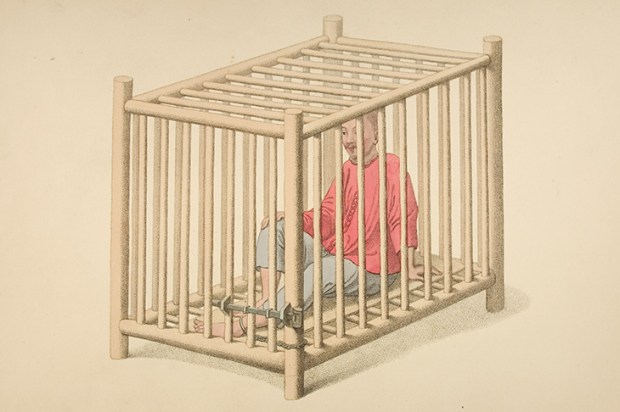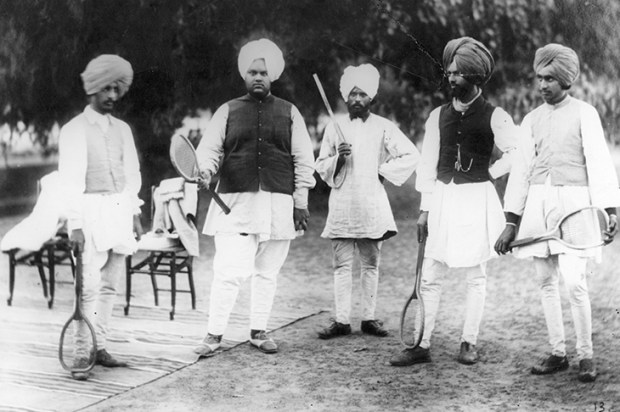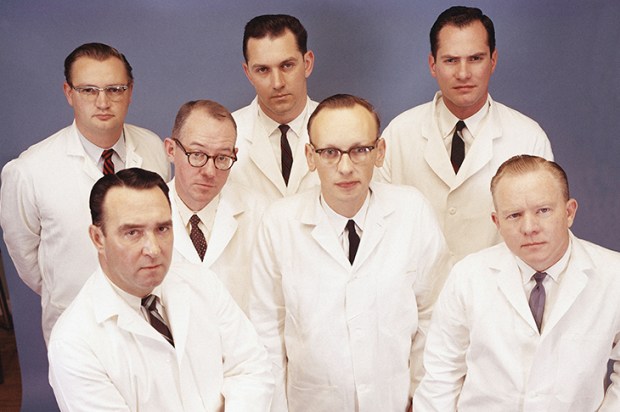A Speccie reader asks for a word that explains the obsessions of the woke around us. Looking for a single word is hard, but how about ‘neoteric’? This describes the people who jump on board the ‘climate crisis’ bandwagon when it rumbles past, then switch their attention to campaigning for ‘Palestine’ (a place that doesn’t actually exist at the moment) when that becomes trendy. In fact, there is no fad, fashion or trend they miss. They are on board with all of them. Tell them there’s a group called ‘transgendered’ who have become victims of something or other and they will join the rush onto social media to (unthinkingly) add their support. ‘Neoteric’ means (literally) ‘addicted to the new’. The word is recorded from as early as 1577. It comes from the Latin neotericus which originally meant just modern or recent. Behind the Latin word is the Greek neo meaning ‘new’. This obsession leads, unfortunately, to a readiness to discard civilisation – because civilisation comes from our past. So, anyone who suffers from this ‘neoteric’ addiction is shallow – must be shallow. Because the great advances of the past must be discarded in favour of the latest fads. But addiction to the new is, itself, not new. When Saint Paul visited Athens his biographer Luke noted that, ‘All the Athenians and the foreigners who lived there would spend their time in nothing except telling or hearing something new.’ (If you want to look up this quote, you’ll find at Acts xvii 21.) The obsessive ‘neoterics’ were wrong then, and they are wrong still.
When commentators say the Prime Minister is ‘under the pump’ for this or that reason it is worth knowing that this is another Australian expression – another of our linguistic gifts to the world. Being ‘under the pump’ means being under pressure, and there are a bunch of theories as to where it might have come from. Sailing ships taking water, when it’s ‘all hands to the pump’? Building sites when concrete is being pumped and needs to be in place before it sets? Or just because the word ‘pump’ means pressure? Those are all unlikely.
When I do a search through old newspapers ‘under the pump’ starts to look like an antiquated form of punishment – either real or imagined. The earliest citation I’ve discovered so far is from 1898, from a newspaper called the Freeman’s Journal published in Sydney. The story is about some sort of theological dispute involving the Bishop of Bathurst who is quoted as saying that his opponents should be ‘put under the cold-water pump’.
A little later (in 1910) the Bathurst Times ran a story in which a judge asked, ‘What shall I do with him?’ (referring to a man charged with breaking and entering) and the reply was ‘put him under the pump’. A story from the Sydney newspaper the Sun from 1921 reports a case of unpaid debt, with the debtor having absconded. The judge appears to have said that if found, the man should be ‘put under the pump’. All of which suggests that ‘under the pump’ refers to some sort of (perhaps jocular or imaginary) form of punishment.
Got something to add? Join the discussion and comment below.
Contact Kel at Ozwords.com.au
You might disagree with half of it, but you’ll enjoy reading all of it. Try your first month for free, then just $2 a week for the remainder of your first year.













